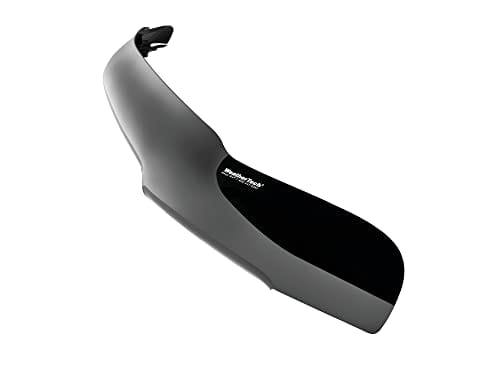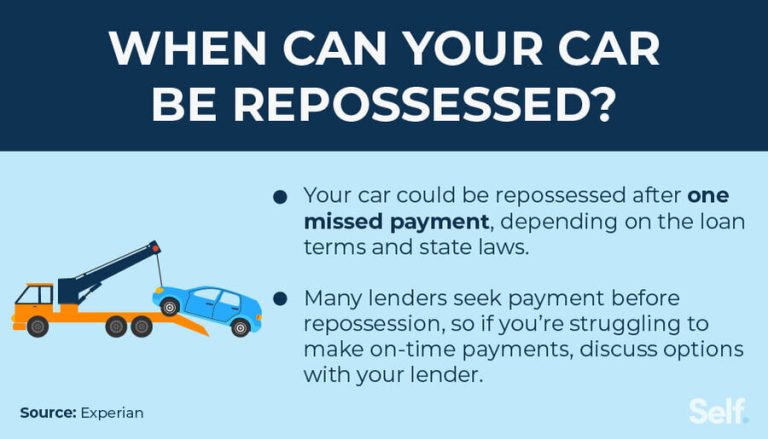How Do You Determine If a Car Repair is Worth It: Smart Tips
To determine if a car repair is worth it, consider whether the cost of repairs exceeds the value of the car. If it does, it may be best to invest in a new vehicle instead.
Additionally, factors such as the age, mileage, and overall condition of the car should be taken into account. Assessing the reliability of the make and model, along with your personal track record with the vehicle, can also help in making an informed decision.
Ultimately, if the cost of repairs outweighs the car’s value and the car has other potential issues, it may not be worth repairing.
Evaluating Car Repair Costs Versus Car Value
When weighing car repair costs against the car’s value, consider the age, mileage, and overall condition of the vehicle. If the repair expenses exceed the car’s worth, it may be more practical to invest in a new vehicle rather than pouring money into repairs that surpass its value.
Assessing Repair Costs
When a car needs repair, it’s important to assess the cost of the repair. One way to do this is to get an estimate from a mechanic or repair shop. This estimate should include the cost of parts and labor. It’s important to get estimates from multiple shops to ensure you’re getting a fair price. Once you have the estimates, you can compare the cost of the repair to the value of the car.
Understanding Your Car’s Market Value
Knowing your car’s market value is crucial when deciding whether a repair is worth it. The market value is the amount your car is worth in its current condition. You can find your car’s market value by using online resources such as Kelley Blue Book or NADA. Once you know your car’s market value, you can compare it to the cost of the repair. If the cost of the repair is more than the market value of the car, it may not be worth it to repair the car.
In conclusion, evaluating car repair costs versus car value is an important decision to make when your car needs repair. Assessing repair costs and understanding your car’s market value are two important factors to consider. If the cost of the repair is more than the market value of the car, it may not be worth it to repair the car. However, if the cost of the repair is less than the market value of the car, it may be worth it to repair the car.
The Age Factor In Car Repairs
As vehicles age, the decision-making process regarding car repairs becomes more crucial. Understanding the impact of vehicle age on repair decisions is essential for maintaining the longevity and efficiency of your car.
Impact Of Vehicle Age On Repair Decisions
- Older cars may require more frequent and costly repairs.
- As a vehicle ages, the overall value decreases, affecting repair cost viability.
- Consider the car’s age when determining if a repair is worth the investment.
Mileage Milestones And Maintenance
- Regular maintenance is vital to extend the lifespan of an older vehicle.
- High mileage cars may need more frequent repairs but can still be worth investing in.
- Track the maintenance history to assess the overall health of the vehicle.
Reliability And Repair Patterns
When determining if a car repair is worth it, understanding the reliability and repair patterns of your specific make and model is crucial. Here are two key factors to consider when evaluating the worth of a car repair:
Make And Model Reliability
Assess the overall reliability of your car’s make and model. Some vehicles are known for their durability and minimal repair needs, while others may have a history of frequent and costly issues. Research consumer reviews, manufacturer recalls, and reliability ratings to gauge the typical repair patterns associated with your specific vehicle.
Personal Repair History Analysis
Evaluate your personal repair history with the car. Consider the frequency and cost of past repairs to identify any recurring problems or patterns. If you’ve consistently faced significant repair expenses, it may indicate that the vehicle is prone to ongoing issues, potentially impacting its overall value.
Maintenance: The Preventive Approach
Determining if a car repair is worth it involves considering the repair cost against the car’s value. If the repair exceeds the car’s worth, it may be best to invest in a new vehicle. Assess factors like age, mileage, and maintenance history to make an informed decision.
Routine Maintenance Benefits
Maintenance is the key to keep your car running smoothly and avoid costly repairs. Routine maintenance benefits your vehicle in many ways. First, it helps to identify potential problems before they turn into major repairs. Second, it extends the life of your car. Third, it improves the safety and reliability of your car. By following the manufacturer’s recommended maintenance schedule, you can avoid expensive repairs and keep your car in top condition.
Neglect And Its Consequences
Neglecting routine maintenance can lead to serious consequences. Skipping oil changes, ignoring warning lights, and neglecting minor repairs can cause major problems in the long run. For instance, failing to change the oil can cause engine damage, while ignoring the brake pads can lead to brake failure. Neglecting the tires can lead to blowouts and accidents. In addition, neglecting the routine maintenance can void your car’s warranty and reduce its resale value.
Ensuring Preventive Maintenance
To ensure preventive maintenance, you should follow the manufacturer’s recommended maintenance schedule. This includes changing the oil and filter, checking the brakes, inspecting the tires, replacing the air filter, and checking the fluids. You can also hire a professional mechanic to perform a thorough inspection of your car and identify potential problems. Regular maintenance not only prevents costly repairs but also improves the fuel efficiency and performance of your car.
In conclusion, preventive maintenance is the key to keep your car running smoothly and avoid costly repairs. By following the manufacturer’s recommended maintenance schedule and ensuring routine maintenance, you can extend the life of your car, improve its safety and reliability, and avoid expensive repairs.
Major Repairs And Decision Making
When faced with major car repairs, it is crucial to evaluate whether the cost justifies the repair. Identifying critical repairs and conducting a cost-benefit analysis can help you make an informed decision.
Identifying Critical Repairs
- Assess the urgency of the repair
- Consider safety implications
- Evaluate the impact on the vehicle’s performance
Cost-benefit Analysis Of Major Work
- Obtain multiple repair quotes
- Compare repair costs to the car’s current value
- Weigh the repair cost against potential future expenses
Ultimately, prioritizing safety and long-term vehicle reliability should guide your decision-making process when determining the worth of major car repairs.
Financial Considerations
Determining if a car repair is worth it involves considering factors like the age and mileage of the vehicle, its market value, and the cost of repairs. If the repair cost exceeds the car’s value, it may be best to invest in a new or used vehicle instead.
It’s important to evaluate your track record with the car, its maintenance history, and reliability before making a decision.
Repair Costs Vs. New Car Payments
Comparing the cost of repairing your current vehicle with the monthly payments for a new car can help in making a decision. Consider the total repair expenses against the monthly payments, including interest rates, for a new vehicle.
Avoiding Negative Equity
Factor in the potential negative equity that may result from trading in your current car with an outstanding loan for a new vehicle. Negative equity can significantly impact your financial situation and should be considered when evaluating the cost of repairs versus purchasing a new car.
Beyond The Wallet: Emotional And Practical Factors
Determining if a car repair is worth it involves considering both emotional and practical factors. Assess the car’s overall condition, your attachment to it, and its value, in addition to the cost of repairs. Balancing these aspects will help you make an informed decision about whether to proceed with the repair.
Attachment To Your Vehicle
Do you have sentimental value attached to your car?
Lifestyle And Transportation Needs
Consider how essential your car is to your daily life.
When To Let Go: Signs To Move On
Determining whether a car repair is worth it depends on comparing repair costs to the car’s value. If repairs exceed the car’s worth, it’s time to consider getting a new vehicle. Factors like age, maintenance, and market value should guide your decision on when to move on.
Safety And Reliability Red Flags
If the repair compromises safety or if your car frequently breaks down, it may be time to move on. Look out for warning signs like strange noises, leaking fluids, or dashboard warning lights.
Future-proofing Your Vehicle Choice
Consider the age and mileage of your car. If the repair costs exceed the car’s value or if it’s an ongoing issue, it might be wise to invest in a more reliable and newer vehicle. Think about long-term maintenance and potential resale value.
Frequently Asked Questions
At What Point Is A Car Not Worth Repairing?
If the cost of repairs exceeds the value of the car, it is typically not worth repairing. Additionally, if the car has high mileage and requires significant repairs or has been totaled, it may be more practical to replace it with a new or used vehicle.
Factors such as the age, mileage, and maintenance history of the car should also be considered. Ultimately, the decision to repair or replace a car should be based on a cost-benefit analysis.
How To Know If A Car Is Worth Repairing?
To determine if a car is worth repairing, compare repair costs to the car’s value. Consider the vehicle’s age, mileage, and maintenance history. If repair costs exceed the car’s value, it’s usually best to invest in a new or used vehicle.
At What Point Is It Too Expensive To Repair A Car?
If the cost of repairs exceeds the car’s value, it’s usually best to get a new car. This is especially true for high mileage cars or if the repairs are extensive. Consider the age, mileage, and reliability of the car, as well as the cost of repairs compared to the market value.
What Percentage Of A Car’s Value Is Worth Repairing?
If the cost of repairs exceeds the car’s value, it’s not worth repairing. Consider the age and mileage of the vehicle, the reliability of the make and model, and the overall condition of the car. If the repairs will cost more than the market value of the car, it’s best to invest in a new or used vehicle.
Conclusion
In determining if a car repair is worth it, several factors come into play. First, consider the cost of repairs compared to the value of the car. If the repair costs exceed the car’s value, it may be more practical to invest in a new vehicle.
Additionally, consider the age and mileage of the car, its overall condition, and your track record with it. By evaluating these factors, you can make an informed decision on whether it is worth proceeding with the repairs or exploring other options.







